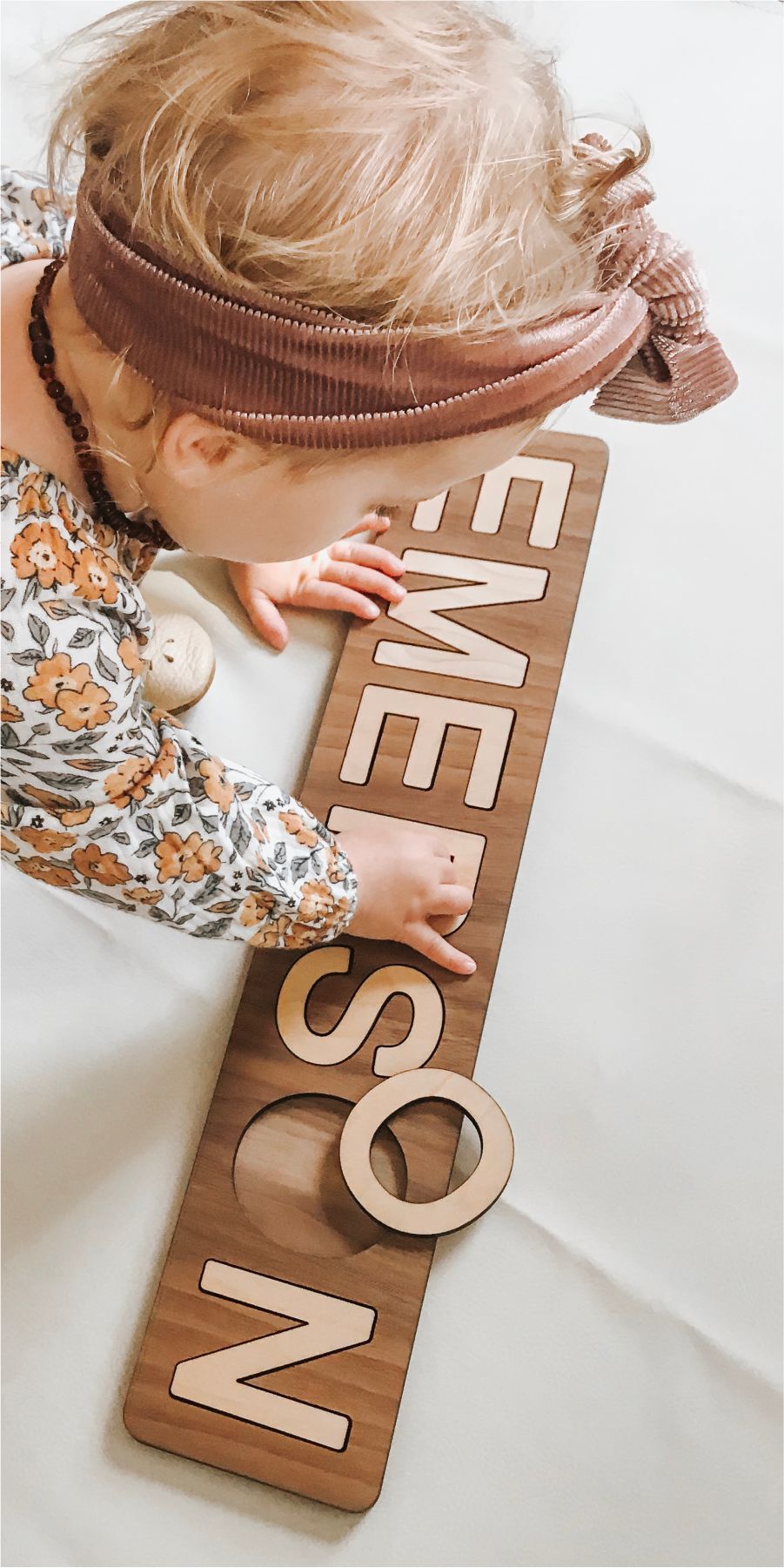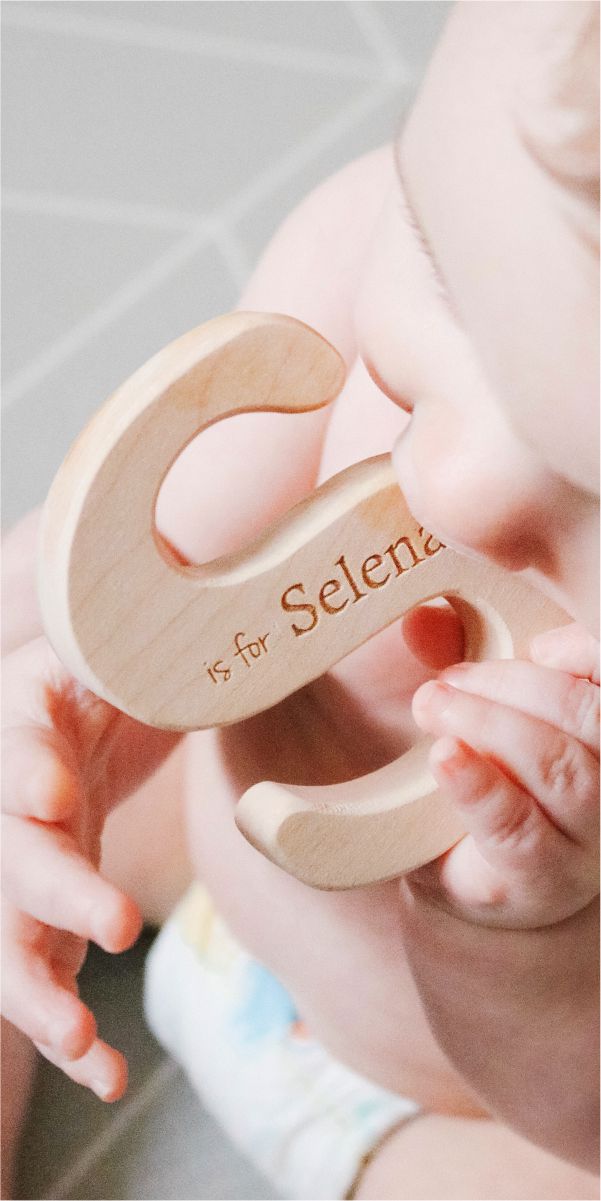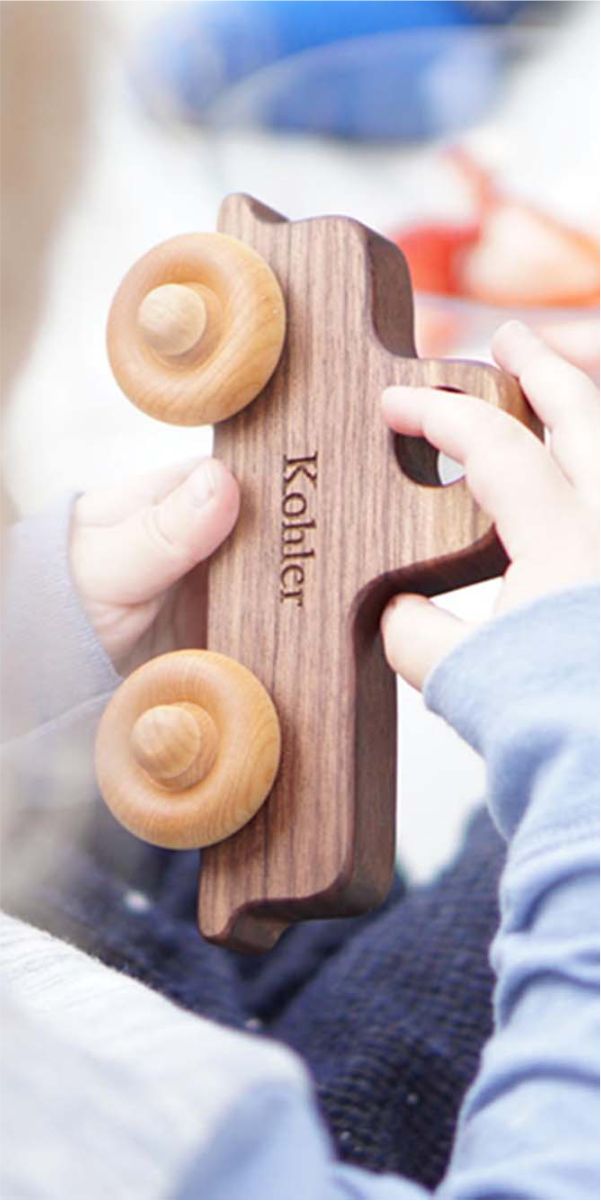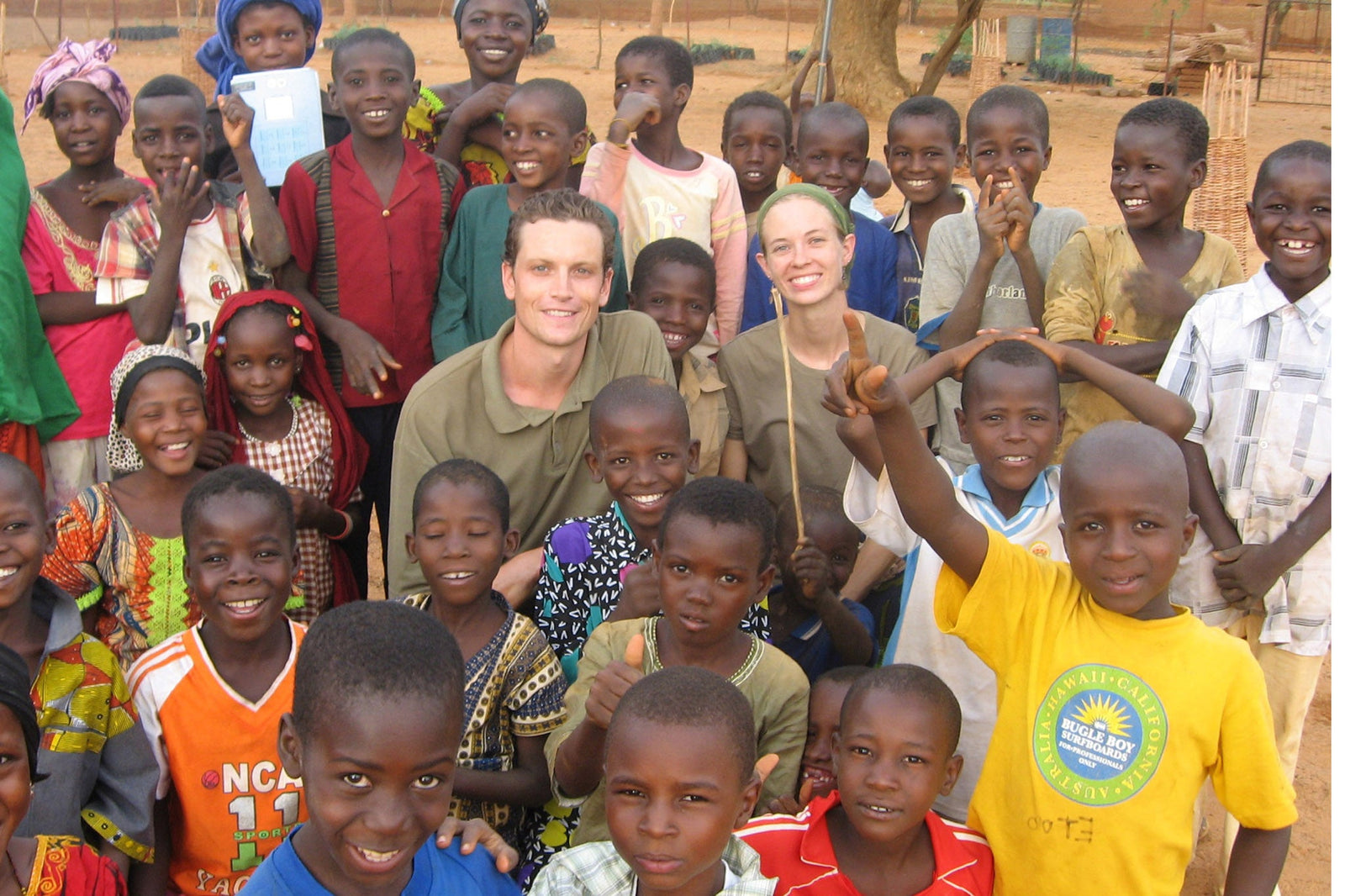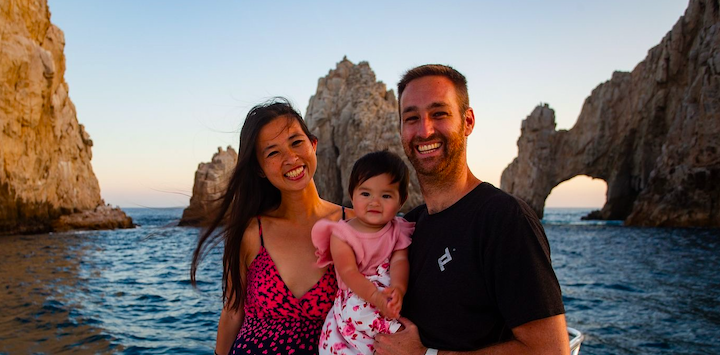Go to the people. Live with them. Learn from them. Love them.
Build on what they have.
But, with the best of leaders, when the work is done,
the task accomplished, the people will say,
“We have done this ourselves.”
-Lao Tsu 700 BC
If you're familiar with our family owned business, then you know that we donate a portion of every sale to Peace Corps development projects happening all around the world (here's our latest project). So in honor of National Peace Corps Week, we thank you from the bottoms of our hearts for supporting Smiling Tree and our ongoing commitment to Peace Corps development projects worldwide.
Over the course of the last few days we've been reminiscing about our time with the Peace Corps (Niger, West Africa 2008-2009) even more than usual. To say that our Peace Corps experience in Niger was life-changing is an understatement. It's nearly impossible to put that time of our lives into words and feel that we've done it justice.
This past week we sifted through our photographs from Niger, re-read letters sent home to family and friends, and did our best to explain to our four year old the existence of a beautiful culture, country, and way of life so different from our own. The following is a glimpse into our "home away from home" in Niger. Let the pictures and outtakes from one of our group letters sent home carry you away to another world!
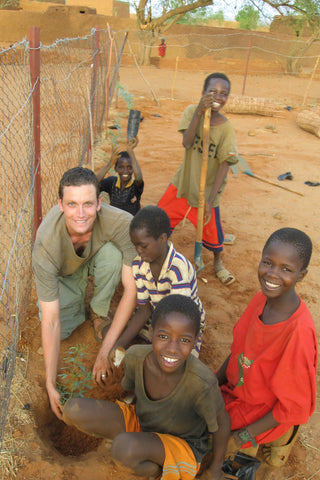
Justin and school kids planting a row of thorny bushes
to surround the new school garden
15 July 2009
An old battery, a bit of scrap metal, a chunk of blue sandal sole, shreds of black plastic bags, millet stalks, an animal bone of some sort, a broken piece of calabash bowl, and a dried up mango pit. No, we weren’t digging through our trash can. We were sitting at a neighbor’s house noting all of the bits of debris embedded in the clay wall surrounding her yard. We’d seen the wall countless times before, but not until now had we taken note of the many things other than clay that it was comprised of.
Not that we’ve nothing better to do than stare at walls, swat flies, and watch the millet grow, but we’re going on one year and seven months in-country and we’ve had our fair share of opportunities to take in the details and nuances of Niger.
Yes, like many rural Nigeriens, we’ve spent countless hours fanning ourselves as we relax in the shade. We’ve passed afternoons watching the lizards in our yard chase after moths or our neighbor girl getting row after row of tiny braids in her hair. We’ve had many-a-conversation about the weather, the crops, who had a baby, whose son just returned from Cote d’Ivoire, whose daughter is marrying whose son, and who said something not-so-nice to someone else. Yes, small town gossip is universal.
 Kathleen with women's group leaders Hadjia Fatima and Asha
Kathleen with women's group leaders Hadjia Fatima and Asha
along with the goats they earned through our goat project
Some days, and even some weeks, seem too long. Sometimes because a work project isn’t going well, we’re feeling homesick as we look at pictures of family and friends, we’re tired of eating millet mush yet again, or it’s still too hot out.
But it’s these same days and weeks that afford us time for lots of life’s pleasures that so many of us often aren’t able to devote much time to. It’s easy for us as Americans to note the things or amenities that Niger lacks. But to have time to read and write, to take up hobbies, to cook meals with locally grown food, to relax without a stack of unopened mail staring us in the face, to be entertained without TVs and computers, to have in-depth, passionate conversations with friends, and to count the stars as they appear each night – these are all simple pleasures that our lifestyle here allows in abundance. We feel very blessed to be so deeply and richly experiencing life in a communal and traditional society. Life here isn’t easy, but we find its simplicity and its deep connection to the natural world to be very fulfilling.

Justin and friends take a break from hoeing millet in the fields
A few days ago, beneath bluebird skies, we followed the rocky, sandy path out to the rainy season lake. The entire length of the 2-mile road is now lined with fields of ankle-high millet and sorghum. We greeted women collecting weeds and grasses to feed their animals, men hoeing their fields, herders with their goats and sheep, Tauregs on camels en route between their seasonal camps in the bush, and kids on donkey back. The reds and grays of the land, the green growth of rainy season, and the brightly colored dress of the men, women, and kids was beautiful. Halfway there, Justin said “Just when I think I’ve already seen the most beautiful places on earth, I see a view like this...”
When we reached the lake, we were in the company of about 200 of our fellow villagers. We’d all come out to greet the director of the local branch of the United Nations FAO (Food and Agriculture Organization). Based in the capital city of Niamey, he and his posse were touring rural Niger to see the projects they had begun throughout the past year. During the dry season (thanks to an Italian-funded dam created in 2003), the dried-up lake bed is the site of many acres of tomato and onion plots. Now the FAO had come to make more of the surrounding land suitable for growing these cash crops during the off-season.
A few weeks ago a crew of twenty or so young Nigerien men arrived and began digging 20 permanent wells (with cement-lined walls) and 80 narrow (just 8 or so inches in diameter) holes down to the water table. Every single one of these wells and motor pump spigots will be dug by hand. The men work shirtless and hatless the entire day long, even during the hottest parts of the day. They’ve built a temporary shelter of logs and grass mats out at the work site – a refuge from the sun and rain. Women from the village are paid to come out and cook meals for them. They drink the water from the wells they’re digging, and they sleep on mats under the stars. We didn’t see an ounce of fat on their bodies – they were pure muscle!

Women's group meeting with an official from a local non-profit
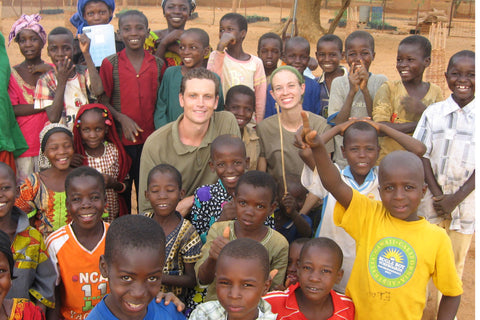
Surrounded by smiling faces!
Despite or share of setbacks, we continue to focus our thoughts and attention on our victories, however small they may be. One of our women’s groups is doing quite well with their group savings account, and the leader is learning how to manage it and ensure its sustainability without any outside interference from men. A handful of kids and women have learned very valuable skills related to planting, caring for, and transplanting tree seedlings. Many men and women are getting some great experience learning how to start up and manage cooperatives. And we, along with everyone else, are learning from our mistakes. Often times learning what not to do is just as valuable as learning what to do.
So we keep on keepin’ on. It’s easy to feel overwhelmed by the problems and setbacks we face. But we do our best to laugh often, not take ourselves too seriously, and begin each day with a fresh, positive outlook. Now more than ever, we appreciate how difficult, tiring, and emotional development work really is. But five months from now when our service is coming to a close, we’re confident we will feel we gave it our all and did as much as two people are able...


